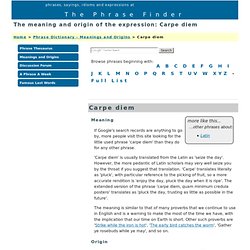

Making An Outline. /** * Simple encryption to hide email addresses from crawlers in webpages. * This code is Free Software provided under an MIT License. * Written by Diego Doval: bnaeQ0bvPXOnZQYgaZqp1ZQO * */ CRLS Research Guide Making An Outline Tip Sheet 14 Ask these questions: What is it?

An outline is an abbreviated picture of the parts of your paper or project and the order in which they will come. Why do it? It helps you to... An outline might be just for your own use, or your teacher may require that you hand it in while you are working on your project, so they can get an idea of where you are headed. How to do it: Figure out the most logical flow of information, the best order for the information to be in, using the subtopics you created earlier. WHERE TO GO FROM HERE:Worksheets: Copyright © 2004 Holly Samuels All Rights Reserved.
100 Exquisite Adjectives. By Mark Nichol Adjectives — descriptive words that modify nouns — often come under fire for their cluttering quality, but often it’s quality, not quantity, that is the issue.

Plenty of tired adjectives are available to spoil a good sentence, but when you find just the right word for the job, enrichment ensues. Practice precision when you select words. Here’s a list of adjectives: Subscribe to Receive our Articles and Exercises via Email You will improve your English in only 5 minutes per day, guaranteed! 21 Responses to “100 Exquisite Adjectives” French/English sayings lost in translation. Learning a new language is a gradual process, and for me, just when I think I’m doing great, I’ll say something that gets lost in translation.

Sometimes it’s weird and other times it’s hilarious, but it always reminds me that I still have a LOT to learn. English sayings are one area where a direct translation rarely works out well, so read on to check out a new infographic from iDBUS that will prove that a word-for-word translation might get you into trouble in French! Ready to get lost in translation? GO! Lost in translation Have you ever confused someone in a foreign language because you mixed up a word or saying? He seemed confused when I said Americans do NOT eat seagulls and they are certainly NOT available in the grocery store! Naturally, I asked some questions to clarify and he told me they came in cans and that you can swallow the bones and all. So when it comes to sayings, a direct translation might not always work (especially if you mix up one of the main words by accident).
The Phrase Finder - Carpe diem. More like this... ...other phrases about: Latin Meaning If Google's search records are anything to go by, more people visit this site looking for the little used phrase 'carpe diem' than they do for any other phrase. 'Carpe diem' is usually translated from the Latin as 'seize the day'.

However, the more pedantic of Latin scholars may very well seize you by the throat if you suggest that translation. The meaning is similar to that of many proverbs that we continue to use in English and is a warning to make the most of the time we have, with the implication that our time on Earth is short. Origin The original source for this Latin phrase is the lyric poet Quintus Horatius Flaccus (65 BC – 8 BC), more widely known as Horace. Dum loquimur, fugerit invida Aetas: carpe diem, quam minimum credula postero. Interesting and Unusual Words. Word Information - an English dictionary about English vocabulary words and etymologies derived primarily from Latin and Greek word origins. Word Roots and Prefixes. Robert Harris Version Date: December 27, 2013 Previous: February 25, 2012 Original: October 13, 1997 This list contains some of the common roots and prefixes that make up the building blocks of numerous English words.

Following the table of general roots and prefixes is a table of number prefixes. How Words Work Even though the English language has more that a million words in it, many of those words are made up of a relatively small set of roots (or base words) and a prefix. Some words also have a suffix. The very words prefix and suffix are good examples, too. By learning the common roots and prefixes (and a few suffixes) you will be able to discern the meaning of many new words almost immediately.
Now that you have learned that ject means to throw, think how many words you can define almost immediately: reject, project, inject, subject, eject, and so on. Literary Terms.